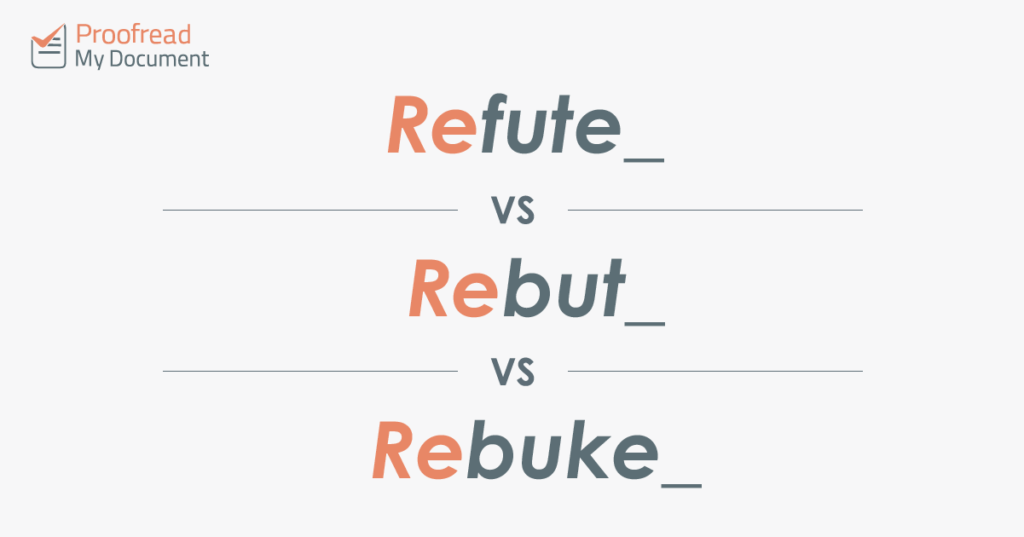‘Refute’, ‘rebut’ and ‘rebuke’ all look similar. In addition, they’re all verbs that describe things you might do to someone you disagree with. In practice, though, they all have different meanings, as we will show below.
Refute (Disprove)
The word ‘refute’ means ‘disprove’. As such, we might say something like this:
The creationist argument is refuted by the fossil record.
Importantly, ‘refuting’ something involves more than just disagreeing with it or arguing against it. You have to prove something is false to refute it.
Rebut (Argue Against)
A ‘rebuttal’ is an argument against something. For example:
Reverend Green rebutted the scientist’s point by shouting about the Bible.
You don’t have to be correct to ‘rebut’ something: it applies to any counterargument, whether right or wrong. If a ‘rebuttal’ works, it may refute the point the rebutter is arguing against. But these are still distinct terms.
Rebuke (Tell Off)
‘Rebuke’ is very distinct from the other words here, as it means ‘tell off’ or ‘reprimand’. Usually, it implies speaking angrily to someone because you disapprove of something they’ve done:
Find this useful?
Subscribe to our newsletter and get writing tips from our editors straight to your inbox.
The chairperson rebuked Reverend Green for his angry outburst.
As above, you might ‘rebuke’ someone for making an unpleasant or silly argument. However, this isn’t the same as arguing against them or disproving their point, so this word is not directly relevant to arguments.
Refute, Rebut or Rebuke?
All of these words have specialised meanings, so try not to mix them up:
- Refute refers to disproving an argument. You have to provide evidence and facts to successfully refute something.
- Rebut also refers to challenging an argument, but you don’t have to be correct or provide any evidence for a rebuttal.
- Rebuke means to tell off someone for doing something you disagree with.
The trickiest two are ‘refute’ and ‘rebut’, since both are used in relation to arguments. But ‘refute’ is stronger, meaning ‘disprove’. If you simply argue against something but don’t disprove it, ‘rebut’ will be the correct term.
‘Rebuke’, meanwhile, means ‘reprimand’ or ‘tell off’. And if you have any other spelling or vocabulary issues, our proofreaders would love to help!
